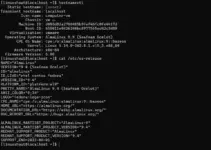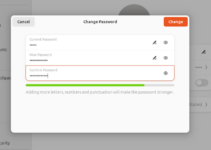If you are wondering is Docker supported on RHEL? Then the answer is YES. Red Hat Enterprise Linux 8 does support this container-based service. Although Podman is a popular alternative to this, users can still manually install Docker. In this article, we learn the steps to install the Docker engine on RedHat using the command terminal.
Things we require to perform this tutorial.
- Of course, RHEL OS
- A non-root user with sudo rights
- Internet connection
- Virtualization support
Installing Docker on RHEL 8 Linux
The Docker packages are not shipped with RedHat Linux and are not supported by it. Because the docker container engine has been replaced by RHEL’s own set of Container-tools. You can know about it on the doc page of RHEL. Hence, if you want to install Docker of Redhat 8 then here are the steps to follow:
1. Remove Container tools
The problem user is facing while installing Docker on RHEL 8 is the package conflict. Yes, the container service is already occupied by the podman and its helping tool such as buildah, cockpit-podman. Hence, first, we run a single command that will remove all of them.
sudo dnf remove runcNote: The above command will also uninstall the dependencies that will again install with Docker.
Output:
Updating Subscription Management repositories.
Last metadata expiration check: 0:03:21 ago on Mon 19 Dec 2022 06:04:45 AM EST.
============================================== Name Exactly Matched: runc ==============================================runc.x86_64 : CLI for running Open Containers
[h2s@localhost ~]$ sudo dnf remove runc
Updating Subscription Management repositories.
Dependencies resolved.
======================================================================================================================== Package Arch Version Repository Size
========================================================================================================================Removing:
runc x86_64 1:1.1.4-1.module+el8.7.0+17064+3b31f55c @rhel-8-for-x86_64-appstream-rpms 9.5 M
Removing dependent packages:
buildah x86_64 1:1.27.2-2.module+el8.7.0+17064+3b31f55c @rhel-8-for-x86_64-appstream-rpms 26 M
cockpit-podman noarch 53-1.module+el8.7.0+17064+3b31f55c @rhel-8-for-x86_64-appstream-rpms 548 k
podman x86_64 3:4.2.0-4.module+el8.7.0+17064+3b31f55c @rhel-8-for-x86_64-appstream-rpms 41 M
Removing unused dependencies:
conmon x86_64 3:2.1.4-1.module+el8.7.0+17064+3b31f55c @rhel-8-for-x86_64-appstream-rpms 172 k
container-selinux noarch 2:2.189.0-1.module+el8.7.0+17064+3b31f55c @rhel-8-for-x86_64-appstream-rpms 57 k
containers-common x86_64 2:1-43.module+el8.7.0+17064+3b31f55c @rhel-8-for-x86_64-appstream-rpms 406 k
criu x86_64 3.15-3.module+el8.7.0+17064+3b31f55c @rhel-8-for-x86_64-appstream-rpms 1.4 M
fuse-overlayfs x86_64 1.9-1.module+el8.7.0+17064+3b31f55c @rhel-8-for-x86_64-appstream-rpms 145 k
fuse3 x86_64 3.3.0-16.el8 @rhel-8-for-x86_64-baseos-rpms 100 k
fuse3-libs x86_64 3.3.0-16.el8 @rhel-8-for-x86_64-baseos-rpms 274 k
libnet x86_64 1.1.6-15.el8 @rhel-8-for-x86_64-appstream-rpms 166 k
libslirp x86_64 4.4.0-1.module+el8.7.0+17064+3b31f55c @rhel-8-for-x86_64-appstream-rpms 134 k
podman-catatonit x86_64 3:4.2.0-4.module+el8.7.0+17064+3b31f55c @rhel-8-for-x86_64-appstream-rpms 764 k
shadow-utils-subid x86_64 2:4.6-17.el8 @rhel-8-for-x86_64-baseos-rpms 205 k
slirp4netns x86_64 1.2.0-2.module+el8.7.0+17064+3b31f55c @rhel-8-for-x86_64-appstream-rpms 103 k
2. Enable the Docker package source
As we know RedHat 8 base repository doesn’t supply the packages to install Docker. So, let’s use the given command and add the repository we need, manually. This will help us to get the install latest stable version of the docker available version of it.
sudo dnf config-manager --add-repo=https://download.docker.com/linux/centos/docker-ce.repo3. Update RHEL 8
To flush the DNF package index cache and rebuild it again, so that it could recognize the added Docker repository- run the system update.
sudo dnf update4. Install Docker on RedHat 8.7
We have removed the Podman and also have added the required repository for Docker Engine and compose. Now, let’s use the DNF package manager to install the docker CE container service with the satisfiable dependencies we are talking about.
sudo dnf install docker-ce docker-ce-cli containerd.io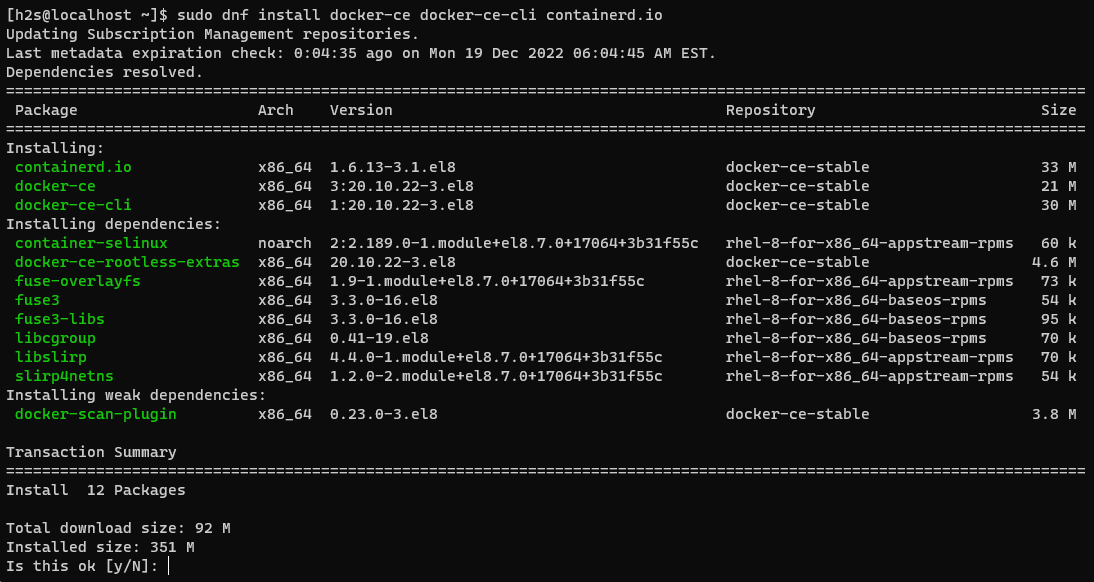
5. Start and Enable the service
To use this container service command line, we must start its service using the systemctl command. This will mark it to run in the background and restart automatically with the system boot.
sudo systemctl enable dockersudo systemctl start dockerTo check the service status:
systemctl status docker --no-pager -lTo know the version of docker ce
docker --version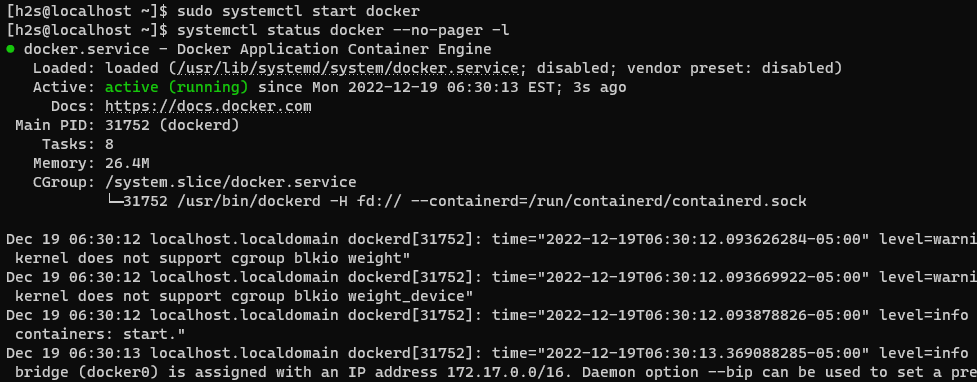
6. Non-root Docker usage
Whenever we want to use the Docker command line, it will ask us to use either root or sudo to perform the tasks. To remove this obstacle, let’s add our current non-root user to Docker’s group.
sudo usermod -aG docker $USERReload Shell session
newgrp docker7. Create a Container
Let’s test whether the Docker is working as we want to create containers by pulling the Images from its library or not. For that, here we are fetching the Ubuntu Image to create a container.
docker pull ubuntuTo check the image has been downloaded on the system, use:
docker imagesCreate a container:
docker run -it --name myfirst ubuntu--name is a parameter to assign a name to the container and myfirst is the name we have used.
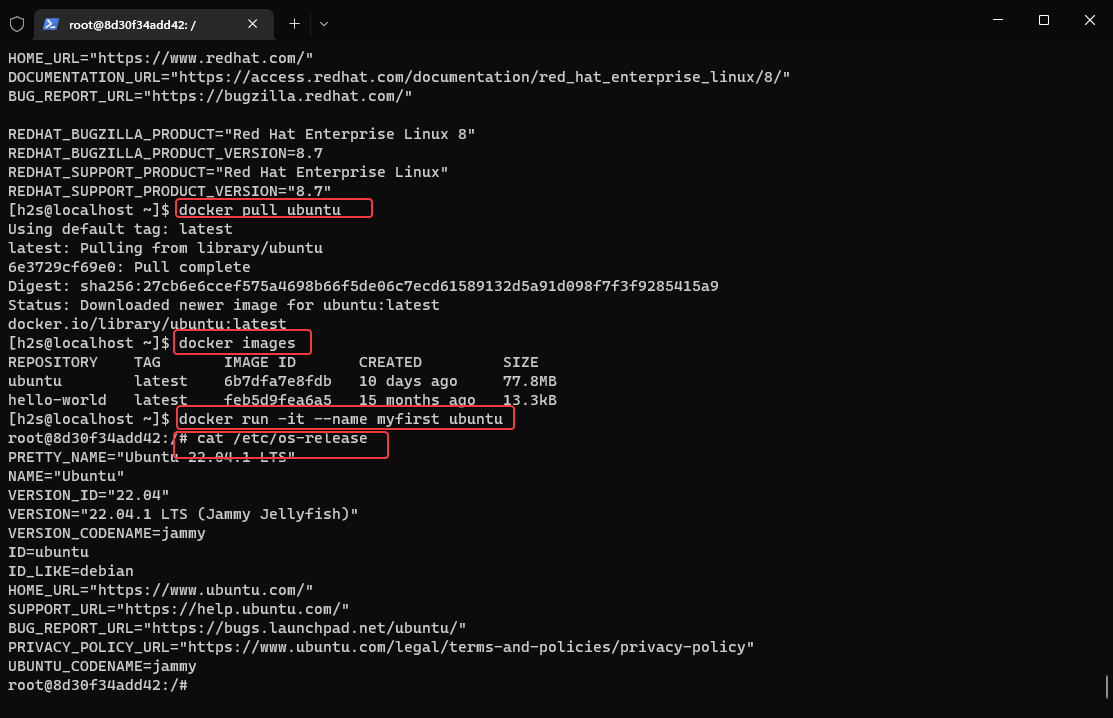
Alternatively, those who want a Quick check can use the hello-world image as well:
docker run hello-world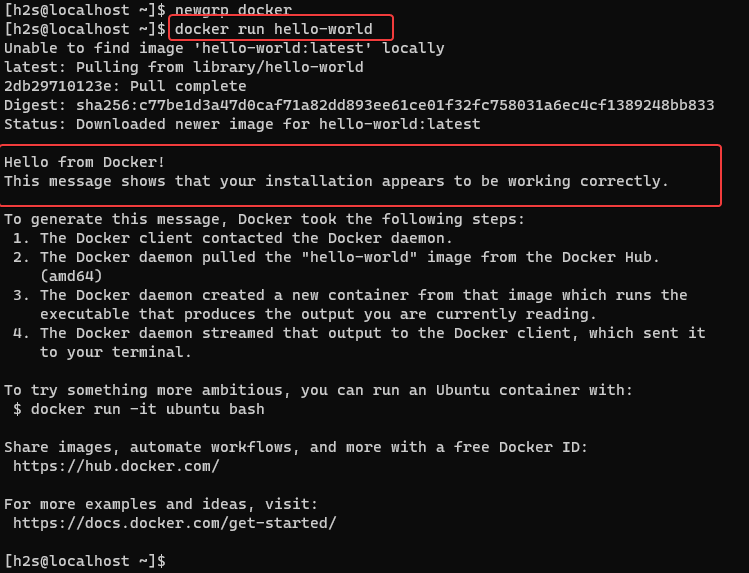
8. Uninstall and reinstall Podman
Well, if you think Docker is not the container service you want. And in case you want to install Podman on your Red Hat Enterprise Linux 8 again then run the following command:
Remove Docker
sudo dnf remove -y docker-ce docker-ce-cli containerd.ioReinstall Podman and Runc
sudo dnf install podman cockpit-podman buildahOther Articles:
- Reset CentOS 8/RHEL 8 forgot the root password
- How to install Docker on Rocky Linux 9 – Step by Step
- How to install Docker on AlmaLinux 9 Linux?
- How To Add User to Sudoers or Sudo Group on Rocky Linux
- Add User to Sudoers or Sudo Group in AlmaLinux 8
- Install Docker Desktop Dashboard on Ubuntu 22.04 LTS Linux
